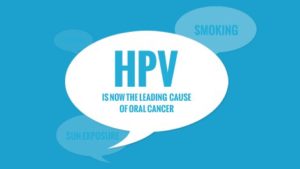Japan questioned the use of an hpv vaccine based on animal research?
Thanks to members of my sharp network of researchers like G. M.-S. I received this news over the facebook wire.
The issue regarding a paper questioning the scientific results got answered when the paper was withdrawn, as it should have been.
Scientific Reports this morning retracted a controversial paper claiming to show that mice given a human papillomavirus (HPV) vaccine showed signs of neurological damage. The paper was assailed by critics as being “pseudoscience” that could have “devastating” health consequences by undermining public confidence in a vaccine given to girls to prevent cervical cancer.
The good news it was withdrawn, retracted, tossed. The bad news is no mention of boys getting the hpv vaccine to protect them hpv cancer in case they meet an unvaccinated girl.
The scientific paper hit the can because:
“The co-administration of pertussis toxin with high-levels of HPV vaccine is not an appropriate approach to determine neurological damage from HPV vaccine alone.”
Huge hpv vaccine dose along with a toxin administered to a mouse? That’s the tipping point?
Japan as a whole has relatively low HPV vaccination rates, and Hanley believes that means the country is unlikely to see any reduction in its current 9000-plus cases of cervical cancer and 3000 related deaths each year.
The numbers are not good, but get worse if the male side of hpv gets added in.
The paper alarmed public health advocates in Japan and worldwide because it seemed to provide some scientific basis for what had been anecdotal reports of alleged HPV vaccine side effects, including headaches, fatigue, and poor concentration.
I’m fairly certain an interview with anyone going through, or having experienced treatment for hpv related cancer, could add to the list of their side effects gruesome enough to kick start the hpv vaccine conversation anywhere in the world.
===
You know it’s a problem when Popular Science reports on the California STD increase.
The CDC found an increase in those same three infections between 2015 and 2016, not just in California but across the entire country. And the shift, according to experts, likely has more to do with stigma against testing and low access to healthcare than promiscuity.
The three infections? Chlamydia, gonorrhea, and early syphilis. Add hpv to the mix and the numbers would fly off the screen.
Is there a stigma against testing? Again, talk to an hpv cancer patient, or survivor. Ask how it went. Then talk about stigma.
A recent study actually found that teens are waiting longer to have sexual intercourse, and are more likely to use contraception. This is slightly misleading, since an increase in oral sex—and a lack of thorough sex-ed to teach young people that protection is also needed during these sort of encounters—could help STIs keep spreading.
Back to the stigma of STDs. Ask an hpv cancer survivor how they contracted it. It could be a most awkward conversation about a most awkward cancer.
If you swear you’d never, ever have sex with someone with herpes, but haven’t asked for an STI panel at the doctor in over a year? You haven’t educated yourself. If you blanch at ads for drugs that allow HIV-positive people to stop using condoms with their HIV-negative partners but yourself engage in oral sex without condoms or dental dams? Ditto. We need less stigma and more efforts to actually improve our health.
Sex education is part of the curriculum? Not always, and if it’s not part of a conversation, talk about health education and slide it in.
===
The educational part of STDs, STIs, and hpv gets a place in Pew Research Center section for Internet and Technology with this headline:
Vast Majority of Americans Say Benefits of Childhood Vaccines Outweigh Risks
It may be a vast majority of Americans, but there are holdouts, and since it’s a free country it’s okay?
People with low knowledge about science are also less likely to see high preventive health benefits from vaccines (55% compared with 91% of those high in science knowledge). In addition, they are more likely to consider the risk of side effects to be at least “medium” or worse (47% vs. 19% of those with high science knowledge.)
If this isn’t a plug for higher education across the boards, then someone is asleep at the switch. Vaccines for kids, vaccines for adults, or treatment for the diseases the vaccines prevent.



